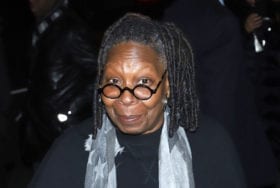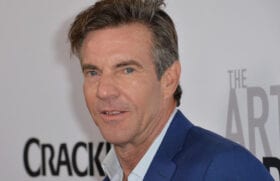TIME OUT WITH… CHRIS NEE
Doc McStuffins is not just one of the most successful shows on Disney Channel and Disney Junior. Its compassionate ethos, in the persona of African-American female protagonist Doc, have garnered numerous accolades, including the recently-won Peabody Award. Creator Chris Nee made a house call to talk about how the series she created to demystify her sons’ doctor visits is evolving, and the importance of elevating women both on screen and behind the scenes.
The show’s secret sauce
For kids, it’s a show that touches on their greatest fantasies and also acknowledges that the world for them is hilariously funny but also has great pathos and drama. For parents, it’s a show that’s aspirational, and that they can really get behind having their kids watch.
Kindred spirits?
I have way more fun writing Chilly than I should. There may be a little hypochondriac something going on [laughs].
The evolution of the McStuffins universe
For me, it has been a continuation of something I know I love to write to, which is a sense of community and what it is to have a group of characters that all love each other with all of their rough edges exposed. That’s the kind of world we could use; a world where people are willing to look past the differences of their neighbors.
That’s Madame Doctor, please
The numbers are really unfortunate still, in terms of representation of women and girls on TV and in film. One of the things the Geena Davis Institute on Gender in Media have shown is that the numbers you think are going to be way better in kids TV actually aren’t. When I was first thinking that animation was something I wanted to do, I watched the credits on shows and saw how few women there were. After I first started having credits of my own, I tried to change my name to Christine, because with my name you can’t tell the gender, but it never felt like me. I’m excited that this year Annecy [the international animated film festival] has “Women in Animation” as its theme; I’ve been meeting quite a bit with women show runners and hoping we get more voices in the television landscape.
Importance of mentoring
It’s a huge part of my process. I have promoted two [female] coordinators to staff writers and I make sure I am finding people who are lacking [opportunity] and putting them into positions where they can learn. Even as a staff writer, there are a lot of pieces of the process you don’t have to see but I tell them that they should sit in on these [other] meetings so that when opportunities arise, they can take advantage of them.




